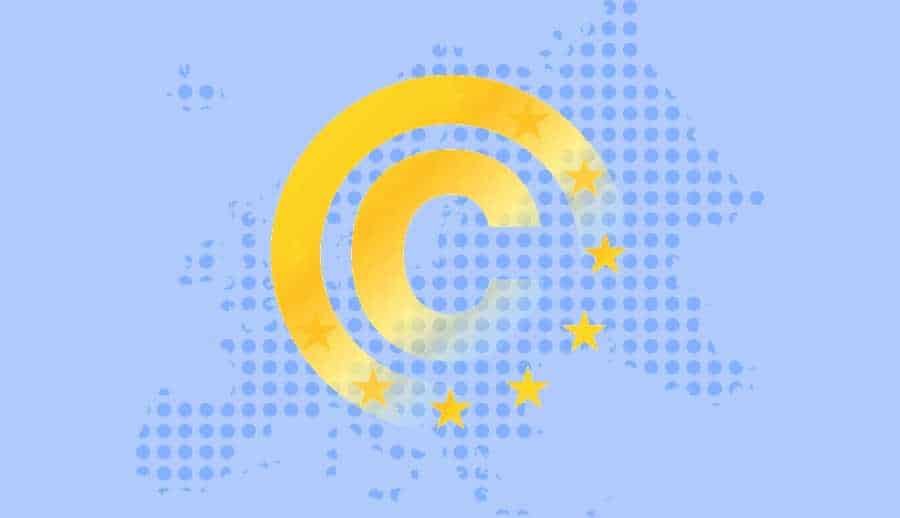Copyright Directive: The European Parliament voted one new set of intellectual property regulations, which upset them activists of digital rights. Activists fear that new regulations will make it harder to distribute content and create new censorship mechanisms on the Internet.
The Copyright Directive is not yet complete, but is the subject of "tripartite negotiations" between the EU countries, represented by the Council of the European Union, the European Commission and Parliament. The resulting regulations will have to be re-adopted by the European Parliament before they can enter into force.
However, the vote on Wednesday means that many of the controversial parts of the regulation, which are about publisher rights and upload filters, are likely to remain.
What articles are we talking about? Let's take a look:
Copyright Directive Article 11
Article 11 will give new e-news publishers a new right: if anyone even duplicates a small piece of text from an article, they will need permission. The big target here, of course, is Google News, and it's assumed that Google will pay publishers to reproduce the titles of their articles.
This idea, known in law as "subsidiary copyright", has been tried before, with disastrous results. The term and the law originates from Germany, where large Companies media lobbied the government for a new copyright subsidiary law that was finally passed five years ago.
At that time, Google News included not only titles but also larger pieces of articles. As soon as the new law came into force, publishers began filing lawsuits against Google for licensing fees. Google reacted and stopped reproducing snippets of articles. So the lawsuits collapsed quickly, giving Google a temporary discharge. Years later, and despite ongoing legal disputes, Google has not paid anything.
In Spain, major publishers have called on the government to vote for even tougher copyright laws. This time, as a response, Google just shut down Google News services in the country.
The result was of course disastrous for small Spanish publishers based on Google News. Also small local news collectors did not have the money to pay.
Despite the above experiences από την Γερμανία και την Ισπανία, πέρυσι, ο Ευρωπαίος Επίτροπος που είναι αρμόδιος για τα δικαιώματα πνευματικής ιδιοκτησίας, αποφάσισε να προσπαθήσει να εισαγάγει τα βοηθητικά πνευματικά δικαιώματα σε ολόκληρη την ΕΕ. Έτσι φτάσαμε στο ψήφισμα της Τετάρτης που επιτρέπει την ελεύθερη trading URLs followed by “single words” rather than text snippets such as full titles.
If the Copyright Directive eventually passes with 11 as it is at the moment, Google could close Google News across the EU. The only thing that will of course benefit will be great news publishers are based on the recognition of their domain in their domestic markets.
This is how competition is based on freedom of information traffic on the Internet.
Copyright Directive Article 13
Article 13 will affect all online services that host and promote content produced by the user. In short, if this content infringes one's copyright, the platform will be responsible for its distribution.
This means that platforms of all kinds will be forced to use filters to stop the users them to load things they shouldn't.
2016, Google said it had spent 60 million dollars to develop such a system. The system searches for digital copyrighted tracks by assigning a Content ID to any known work. However, as it was discovered during the upload of innocent videos, Content ID does not work perfectly. Various YouTube submissions were inadvertently rejected for copyright infringement. A typical example of one 10oor white noise video and the recordings of a prominent British pianist who he was playing Bach's works.
Copyright Directive: Regular Lobby
Although large technology companies are almost unanimous in the new regulation, the big media do not. But many are also those who believe that this particular movement is orchestrated by her Big Tech.
There is a dose of truth in it. The Financial Times they said that Google has tried to approach publishers with a program that finances the development of new online media models to put pressure on Members of the European Parliament (Members) for the new regulation.
However, Google may benefit from the Intellectual Property Directive. It has the resources to pay for filtering systems that the smaller rival companies can not afford.
Also, if he has to end Google News in Europe, he will do it without hesitation, despite paying billions to thousands of publishers.
Of course many questions are created with all of the above. Possession of information and its distribution (as appropriate) is characteristic of repressive regimes. On the other hand, who can guarantee that even the big technology companies use this power with transparency? The examples which we have lately told us the opposite.
The final stage of the battle (last vote of the European Parliament) on the Copyright Directive is likely to take place in spring, shortly before parliamentary elections.
______________________
- Google: our company is also watching offline
- Hostgator personal experience that you should avoid
- Google: saves journalism, breaks the duopoly for the monopoly
- Checksum What is it and why should I care?
- Android Pie: what are the Adaptive Battery and Brightness?





